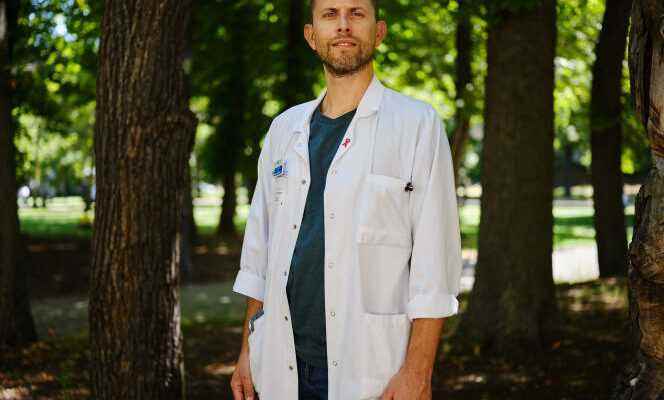This spring morning, a mother and her daughter in their twenties are seen in the polytraumatized department of the Pitié-Salpêtrière hospital. The day before, at 10:30 p.m., their daughter and sister, Marguerite Delage, 16, was hit by a truck while going to the movies with her friends. She was transferred to the emergency room of the Parisian hospital. The CT scan reveals severe brain damage. “Very thorough examinations were done last night, the bleeding is so serious that Marguerite’s brain has been damaged”, announces Frank Ferrari, nurse coordinator of organ and tissue samples at the Pitié-Salpêtrière hospital (AP-HP). The two women collapse.
“There are two ways to die, either the heart stops or the brain stops, which is the case of Marguerite. She is in a state of clinical and brain death., adds Thomas, an intern in medicine. Faced with the onset of this violent death, Frank Ferrari explains, speaks calmly: “These are very difficult times, what is happening is very, very serious, it is irreversible. » Time seems suspended.
What is at stake during this forty-five minute interview is a larger-than-life simulation. “Do you know if your daughter, your sister, had opposed the donation of her organs and tissues during her lifetime? », gently asks Frank Ferrari, who plays himself. The mother and sister are respectively played by a nurse and a caregiver. These sessions, about two per month, are useful for the team, and for the resuscitators.
“The temporality in the question of organ donation is essential, the announcement of death must not be avoided. We must have the time to take the time, despite the tragic circumstances, the emergency context”, insists Frank Ferrari. Faced with the unthinkable, some families do not hear, may be in denial, even refusal or aggressiveness.
The aim is to seek possible opposition to the donation. “We need to anchor the idea of good citizenship in health and encourage everyone to talk about it”insists Emmanuelle Cortot-Boucher, Director General of the Biomedicine Agency (ABM) ahead of the National Day of Reflection on Organ Donation and Transplantation, and Donor Recognition, scheduled for Wednesday, June 22.
Wills of the deceased
The law stipulates that we are all presumed donors of organs and tissues (cornea, vessels, epidermis, valves, tendons, etc.), unless we have expressed our refusal during our lifetime, by being registered in the national register of refusals or by by informing our relatives. In the facts, “the request is always made to the family or relatives to testify to the wishes of the deceased”explains Frank Ferrari.
You have 70.52% of this article left to read. The following is for subscribers only.
